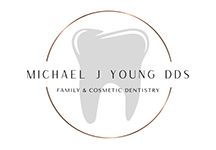 On a television show, it can be funny to watch someone share a space with a person who snores. Think of the new roommate who sounds like a diesel engine when he sleeps, or the long-suffering wife whose husband’s snores practically shake the room. In reality, snoring makes it harder for you to get restful sleep, can upset your partner, and can be a sign of poor health. It can also be a symptom of sleep apnea, a serious health issue. Fortunately, your dentist can help you understand, and find ways to treat, snoring and sleep apnea.
On a television show, it can be funny to watch someone share a space with a person who snores. Think of the new roommate who sounds like a diesel engine when he sleeps, or the long-suffering wife whose husband’s snores practically shake the room. In reality, snoring makes it harder for you to get restful sleep, can upset your partner, and can be a sign of poor health. It can also be a symptom of sleep apnea, a serious health issue. Fortunately, your dentist can help you understand, and find ways to treat, snoring and sleep apnea.
What Causes You To Snore?
Snoring occurs when the airway in the back of your throat becomes partially blocked by soft tissue, which leads to restricted, difficult breathing. Snoring is more common among older people, and people who are overweight. People who snore are prone to less restful sleep, and are vulnerable to the effects of sleep loss during the day. Snoring can also make it difficult for you to share a bed with another person.
Heavy snoring can also be a sign of sleep apnea. Obstructive sleep apnea (OSA) is a blockage of the airways by your soft tissue during sleep that leaves a person without air for at least 10 seconds. In addition to being groggy and less able to focus, sleep loss can increase your risk of suffering a serious health event, like a heart attack or a stroke.
Talk To Your Dentist About Snoring And Sleep Apnea
Your dentist can help you better understand snoring and sleep apnea, and find treatments. Often, a non-invasive oral appliance can be provided by your dentist to treat these issues. This appliance keeps airways open, eliminating the breathing restrictions that cause snoring and sleep apnea.

